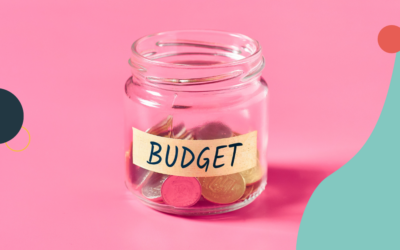Genevieve Michaels writes to make complex topics engaging and accessible. She started her career in the contemporary art world, then pivoted to life as a freelance writer. She’s written for brands like Atlassian, Shopify, Hootsuite, and Hubspot, and her creative writing has been published in Elle Canada, Vice Canada, and Canadian Art Magazine.
Find her on Substack at gentle chaos, where she shares her creative writing and thoughts about freelancing, reading, travel and living a self-determined life.
"Your to-do list is a menu of exciting possibilities, not a list of obligations."
Talk to us about what gentle productivity means to you.
We’ve all heard that procrastination is a problem with emotional management. Gentle productivity is about staying in tune with your emotions, and using them as a guide.
To me, negative feelings like frustration or disengagement are not an inconvenience. They are precious signals towards where you shine, what inspires you, and where you should focus your energy.
So many traditional productivity methods, like time blocking, involve rigid, predetermined rules and obligations. That’s never worked for me.
Instead, I aspire to work with my natural impulses, curiosities, and inclinations — or at least listen to them, without judgment. Those feelings are just data, and I can use them to improve how I work.
I’ve learned from experience that I’m more productive when I’m inspired, excited, and curious.
When you’re highly engaged in an activity, you are working faster, being more creative, and doing better work.
It’s not lazy to want to chase that feeling — it’s using your mental resources effectively. And more importantly, it improves your experience of work, which means elevating your life as a whole.
Read more thoughts about gentle productivity on my Substack here.
How do you incorporate this approach to productivity into your daily routine?
Creating space for your own interests, curiosities, and emotions doesn’t happen by accident. It takes three crucial components to work this way: reducing distractions, removing time pressure, and breaking down your work into different kinds of tasks.
Here’s a little more detail on each of these three strategies:
- Protect your time (and brain) from the internet: Because smartphones and social media are designed to be addictive, they put us out of touch with our natural curiosities and inclinations. By limiting your access to these distractions (or whatever else tends to throw you off track), you give yourself space to discover what does make happier, more inspired, and more productive. I wrote an step-by-step guide to these strategies on my Substack — read it here.
- Give yourself plenty of time: If something is due tomorrow, it doesn’t matter how you’re feeling — you’ll have to do it whether you’re in the mood or not. That means padding your deadlines, and starting on projects way before you need to. That is its own special kind of discipline, but it gets easier with time.
- Understand the building blocks of different types of work: What specific tasks does it take to get a project or assignment done? These will depend on your profession — since I’m a writer, mine include research, outlining, drafting, and editing. This allows you to choose the work that feels right for you in each moment, instead of scheduling your time based on clients or projects.
Together, these elements add up to a life where you know what you’ve committed to, and what it will take to get there. But nothing is imminent, so how you use each day and hour is entirely up to you.
Each new day becomes a fresh, inspiring blank page. Your to-do list is a menu of exciting possibilities, not a list of obligations. Instead of “I need to start X project,” you could say “I feel like some research today, what’s coming up?”
Not every day will look like this — we all have to do things we aren’t in the mood for now and then. But I find that pushing down negative feelings just makes them worse. By holding space for inconvenient feelings like boredom, this approach helps me with all parts of work, not just the ones I’m excited about.
What are some indicators that more traditional approaches to productivity might not work for someone?
You wouldn’t expect to change your body to fit into a pair of jeans. So why should your brain conform to a certain way of working?
Our working habits, methods, and routines are supposed to enable you to do your best work. But since we spend so much of our time working, they should also make your life more enjoyable.
If your current work routines feel painful or discouraging, that’s a sign they’re not not the best fit for you. Similarly, if you see yourself as lazy or lacking discipline, that could be a clue that you’re not inspired.
These feelings can, of course, signal larger issues like attention deficit disorder or executive dysfunction. But why not start by working towards a professional life that feels good? You won’t be able to eliminate all the work you don’t love right away, but listening to those feelings can make them easier to live with in the meantime.
On Substack, I wrote about my journey to realizing traditional productivity didn’t work for me — read it here.
How do you navigate negative self-talk when it surfaces?
Negative self talk is just feelings — shame, judgment, fear, anxiety.
Seeing those feelings objectively, as data I can learn from, helps me not get caught up in them. It helps me not to give those thoughts more power than they actually have.
Coming back to what I said above, obviously, reality isn’t going to match up with this vision all the time. But somewhat counterintuitively, this approach helps me tackle even the tasks that don’t feel flowy, that I do have internal resistance towards.
Those feelings are easier to handle, because I’m not judging myself for having them. They are what makes me human. They’re valuable data that I can use to improve my life and work.
What advice do you have for new freelancers who are struggling to find productivity practices that work for them?
I would suggest thinking about what motivates you, and designing a working style that puts those things first. “Motivation” isn’t going to be a problem when you’re living your dream life, or at least getting closer to it. So how can you make that a reality?
Even when I’m not that excited about the specific topic I’m writing about, it’s part of a career and life that brings me joy. You’ll be so much more engaged with work if it’s part of creating a life that feels fulfilling and exciting, generally.
For me, freedom and seeing the world has always been the thing. I travel often, and people have asked if I find it distracting or hard to concentrate when I’m in a new place. The answer is no, of course not — it’s not hard to focus on living your dreams.
Maybe caring for your family, or spending time in nature makes you happy. If you can clearly see how your work routines bring you closer to those things, they will be so much easier to stick to.




